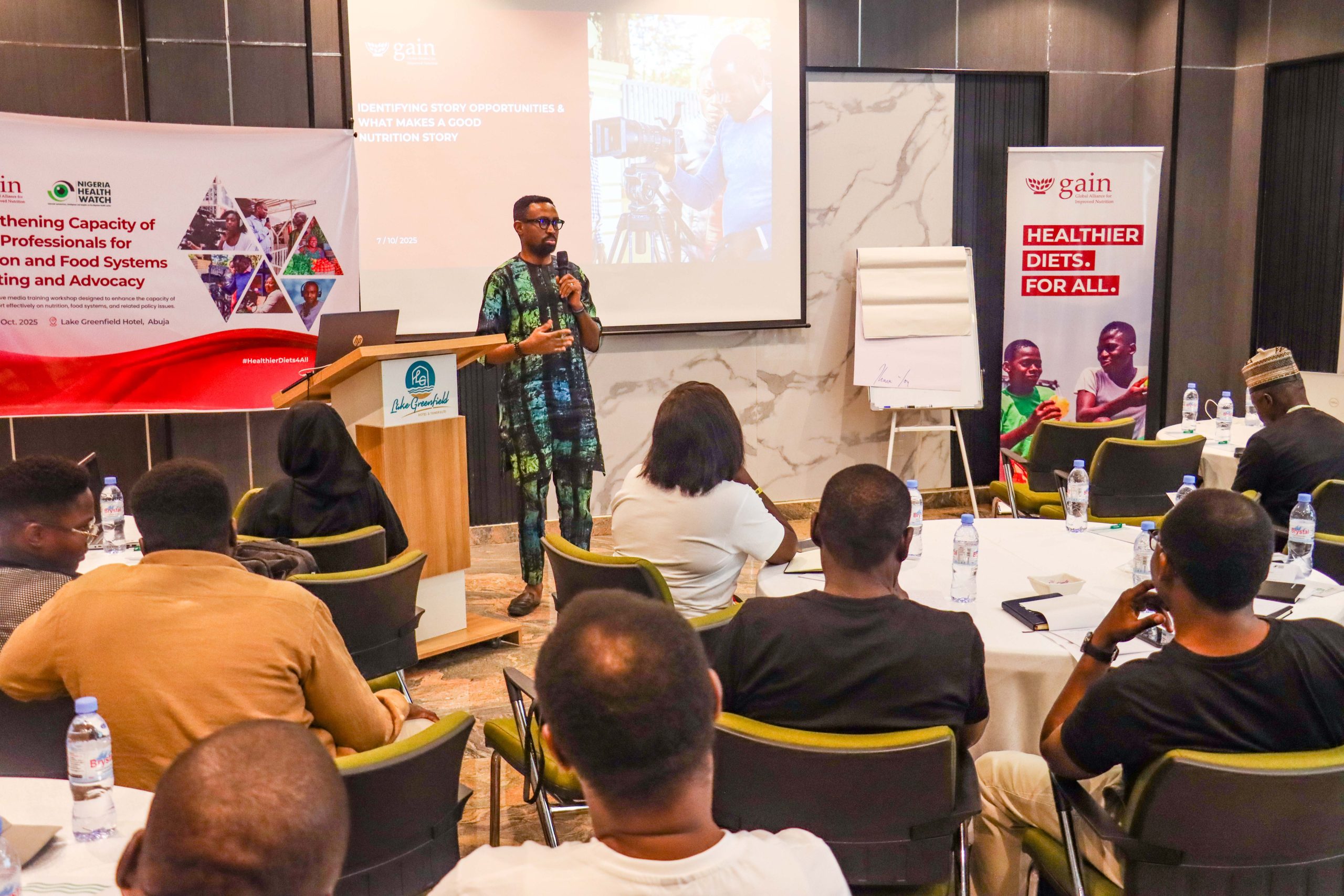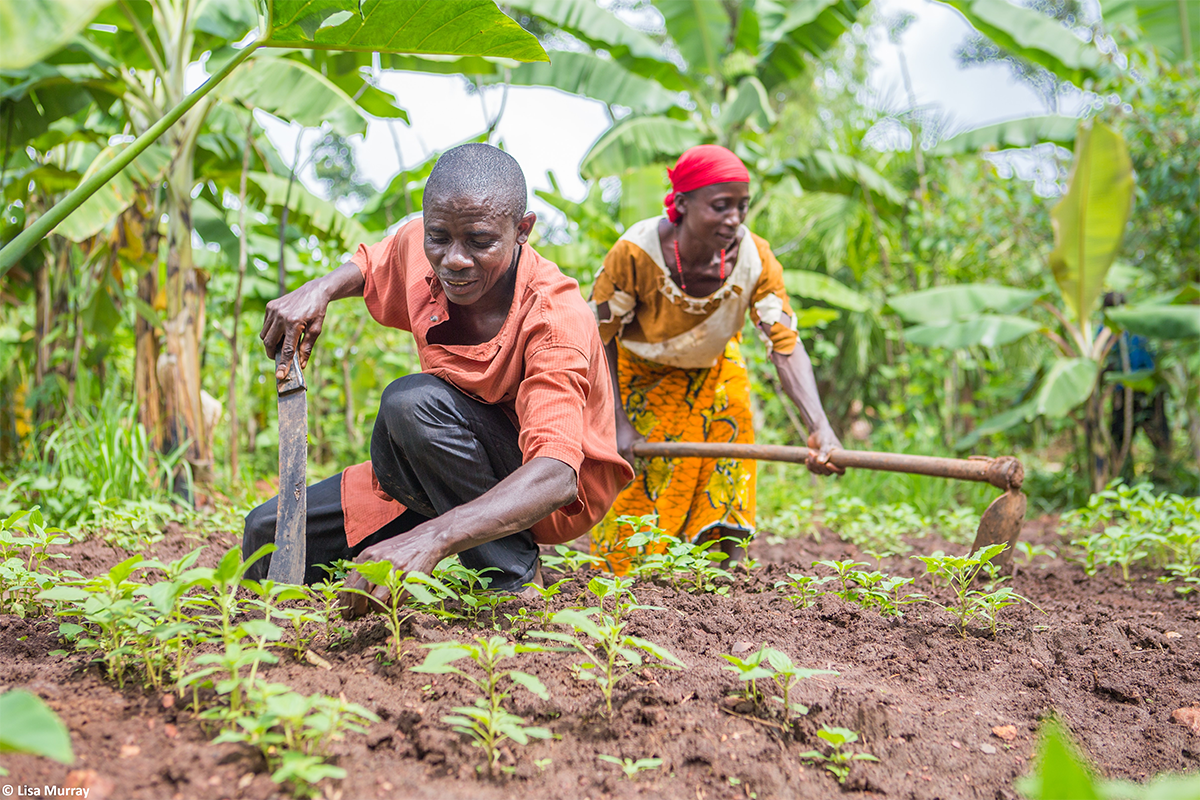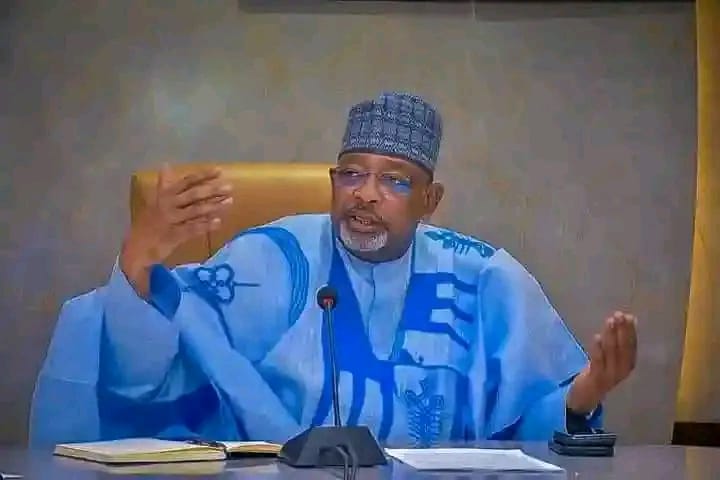For two days, media professionals from selected media organisations across the country converged on Abuja for a workshop and training session, to equip them with tools to craft impactful stories on nutrition and food systems reporting and advocacy.
The workshop, courtesy of the Global Alliance for Improved Nutrition (GAIN) and Nigeria Health Watch, was specifically designed to charge journalists to play more active role in promoting healthy diets and food systems, due to the power of the media in shaping public perception and influence on national conversations on nutrition.
The Country Director of GAIN, Dr. Michael Ojo enjoined journalists to strengthen evidence-based and solution-driven reporting to promote better nutrition and public health outcomes in Nigeria.
Represented by the Senior Associate, Communications of GAIN Nigeria, Mr Victor Ekeleme, Ojo commended the participants for their active engagement and strong commitment to telling impactful stories that can inspire positive change and influence national policies.
“You shape narratives, influence conversations, and affect how people act or talk about food and nutrition. We want you to help us push stories that promote better nutrition and healthier lifestyles.”
He noted that the workshop was not just another training session, but a platform to equip media professionals with tools to use data in crafting impactful stories. “We have gone beyond just telling stories. We now use data to make those stories more powerful. By the end of this training, we hope you leave with stronger skills, better networks, and renewed inspiration,” he added.
The workshop, featured presentations from facilitators including Dr. Olapeju Phorbe, a food systems consultant, Sumit Karn of UNICEF, Habibat Lawal, Chibuike Alagbaso of Nigeria Health Watch and Damilola Ojetunde who spoke on data and evidenced-based journalism, among others.
In her session titled: Basic Nutrition Principles, Dr. Phorbe urged Nigerians to diversify their diets using the abundant local food options available.
“Nigeria is blessed with food diversity. If only people knew how to make better choices, they would live healthier lives. Food is medicine. If you don’t take food as medicine, medicine will become your food.”
She warned against the distribution of expired or unsafe food items, especially to vulnerable populations as palliatives. “It is dangerous and inhumane. People without options will eat whatever they’re given. It’s better to go hungry than to eat unsafe food. Authorities need to enforce stricter food safety regulations.
Dr Phorbe also challenged the media to increase coverage of nutrition and health issues, adding that the public trust in journalism gives reporters unique power to shape behaviours. “Journalists must be deliberate about spreading nutrition messages. These conversations should reach the federal, state, and local levels.”
In his presentation titled: “Beyond the Headline: Uncovering Nigeria’s Nutrition Story with Data and Evidence,” Ojetunde, stressed the need for journalists to pay close attention to key nutrition indicators such as stunting, wasting, and underweight prevalence among children under five in their reportage.
He identified other important indicators to including micronutrient deficiencies in iron, vitamin A, and iodine; exclusive breastfeeding rates for infants aged 0–6 months; and maternal malnutrition indicators such as body mass index (BMI) and anemia.
Ojetunde also underscored the relevance of food security indicators availability, accessibility, utilisation, and stability alongside dietary diversity and Infant and Young Child Feeding (IYCF) practices as vital measures of overall nutritional well-being.
According to him, the 2018 Nigeria Demographic and Health Survey (NDHS) revealed that, the prevalence of stunting is highest in the North West (57%) and lowest in the South East (18%), while Kebbi State records the highest rate at 66 per cent and Anambra State the lowest at 14 per cent.
Aside the presentations, the capacity-building workshop also featured practical exercises and a field visit, where the journalists were assigned to different beats to deepen their understanding of the food systems and its connection to public health.The peak of the workshop was the presentation of certificates to participants.






